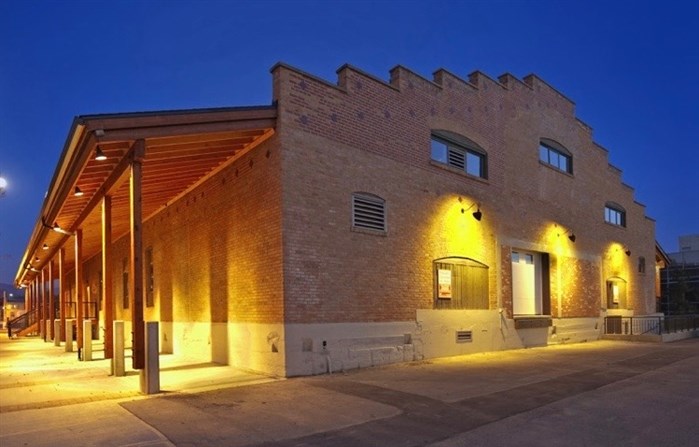
The Laurel Packinghouse in downtown Kelowna.
Image Credit: SUBMITTED/laurelpackinghouse.ca
January 28, 2020 - 6:00 PM
While men fought in the First World War, it was women who held up the Okanagan’s fruit economy by taking over jobs in the packinghouses.
A new short documentary called The Okanagan Applebox Belles is highlighting the important roles and untold stories of these women from roughly 1890 to 1960.
Based on the online exhibit Applebox Belles, which was produced by the Lake Country Museum, the mini-documentary was published to Telus Storyhive on YouTube, Jan. 17.
According to the documentary, the Okanagan was first marketed to settlers in the 1800s as a ranching industry. But by 1890, the ranchers began to subdivide their land into orchards with irrigation systems.
The first orchards were owned by families and men mostly worked in packinghouses. But with the First World War, there was a push for women to enter the industry, both as pickers and packers as the men went off to war, the documentary said.
“It was always the men who got the recognition for the decisions they made and new inventions to make the packing process easier to handle, but no one recognized the women in the background that took care of a lot of things,” said Rosemary Carter, a longtime Lake Country resident who helped gather the interviews for the documentary and assisted with the creation of the original online exhibit.
Some workers were farm wives, others were young girls, some women came from the Kootenays to work in the Okanagan. Workers who came from other areas in B.C. sometimes ended up marrying young men and staying in the Okanagan, the documentary said.
At the time, there weren’t a lot of other businesses and women didn’t have a choice for a lot of jobs. It opened doors for women, giving them the ability to earn money as they changed the industry with an unskilled labour force into a skilled profession.
“They were always trying to improve the speeds that they packed at,” history writer Shannon Jorgenson said in the documentary.
Packing competitions were held as a way to market Okanagan fruits and Lake Country’s own “Winsome Winney” Draper Heyworth was known for her packing skills in Kelowna.
The women would put in long hours, 12-hour days with no overtime. Conditions were often cold with machinery that could cause injury so in 1955 packinghouse workers went on strike and were able to change working conditions.
Then automation began to replace the work of human hands, which marked the end of the packinghouse era. But the history of the packinghouses in the Okanagan remains.
“The women were very directly involved and committed to helping out wherever they could (in the fruit industry,)” Carter said.
It’s all part of our existence (here in the Okanagan),” the packing houses were the beginning of the establishment of agriculture in the Okanagan Valley, she said.
“It was great (to watch the video), but to me it was far more important to be able to interview these people before we lost the opportunity,” Carter said, as many former packinghouse workers are elderly.
To contact a reporter for this story, email Carli Berry or call 250-864-7494 or email the editor. You can also submit photos, videos or news tips to the newsroom and be entered to win a monthly prize draw.
We welcome your comments and opinions on our stories but play nice. We won't censor or delete comments unless they contain off-topic statements or links, unnecessary vulgarity, false facts, spam or obviously fake profiles. If you have any concerns about what you see in comments, email the editor in the link above.
News from © iNFOnews, 2020